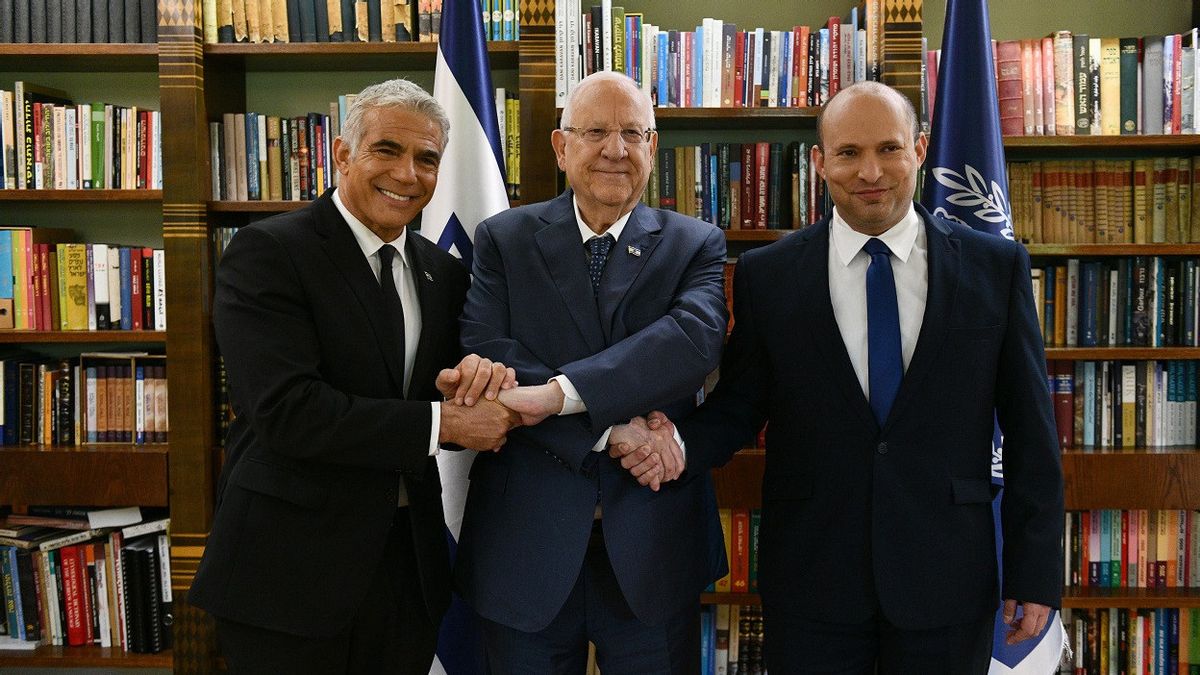JAKARTA - Israeli lawmakers will vote next week to dissolve parliament, paving the way for the country's fifth election in three years, after Prime Minister Naftali Bennett was unable to withstand mounting pressure on the fragile ruling coalition.
Bennett will step aside to be replaced by Foreign Minister Yair Lapid, his partner in the opposing coalition that ended former Prime Minister Benjamin Netanyahu's record 12-year rule 12 months ago.
Lapid, a former journalist who heads the largest party in the coalition, will serve as interim prime minister until new elections can be held.
"We stand before you today at a time that is not easy, but with understanding we made the right decision for Israel," Bennett said in televised statements as he stood beside Lapid.
A vote will be held in parliament next week, after which Lapid will take over as prime minister, according to a spokesman for Bennett.
The move comes just weeks before a planned visit by US President Joe Biden, whom the administration has relied on to help improve regional security ties against Israel's longtime foe Iran.
But the eight-party coalition, including hard-right, liberal and Arab parties with deep differences on questions from religion to the Palestinian issue, is facing rising tensions as its small majority was cut off by defections.
"I think the government did a very good job over the last year. It's a shame this country had to be dragged into an election," said Defense Secretary Benny Gantz, head of the center party in the coalition.
"But we will continue to function as an interim government as much as possible."

The date for snap parliamentary elections was not announced, but Israeli media reported it would likely take place in October.
Meanwhile, Lapid said he would not wait until new elections to address the problems facing Israel.
"We need to overcome the cost of living, launch a campaign against Iran, Hamas and Hezbollah, and fight the forces that threaten to turn Israel into a non-democratic state," he stressed.
Bennett, a former command and technology billionaire who entered national politics in 2013, defended his government's record, saying it had boosted economic growth, cut unemployment and wiped out the deficit for the first time in 14 years.
But, as pressure on the government increased in recent days, he was unable to unify the coalition and decided to step down before Netanyahu's right-wing Likud party could submit its own motion to dissolve parliament.
Earlier, Netanyahu, who has vowed to return despite facing trial for corruption, said Likud would lead the next government and he booed Bennett, a far-right politician who was once one of his closest aides.
SEE ALSO:
"Tonight people are smiling," Netanyahu said, speaking to reporters in parliament.
"They understand something great is happening here. We got rid of the worst government in the history of this country," he said.
Separately in Gaza, the Palestinian Islamist group Hamas said it would not change the course of its struggle with any new Israeli government.
"We must fight to regain the full rights of our people," said spokesman Fawzi Barhoum.
The English, Chinese, Japanese, Arabic, and French versions are automatically generated by the AI. So there may still be inaccuracies in translating, please always see Indonesian as our main language. (system supported by DigitalSiber.id)


















